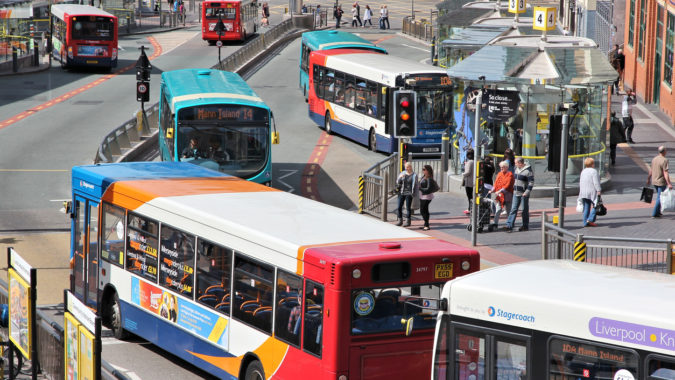Earlier this month, as part of a broader fact-finding trip to the east coast of the United States, Lord Adonis and I had the pleasure of meeting the President and members of the board of New York’s Regional Plan Association, to hear how their work is informing and challenging the city’s approach to the infrastructure challenges it faces, and to see what we can learn from them as we look to maintain London’s status as a world city.
London’s transformation
Twenty years ago, our capital city faced a crumbling infrastructure network, struggling to cope with ever-increasing demands from its growing population and the cracks clear for all to see. The considerable improvements since then can make it hard for Londoners to remember having to use a paper ticket to travel by tube, the Jubilee Line terminating at Charing Cross, no congestion charge and no scenic strolls over the Millennium Bridge from St Pauls to the South Bank.
The vast changes since then have been possible thanks to three key factors: strong leadership, both political in the form of a dedicated Mayor, and operational in the form of powerful and autonomous transport commissioners; a growing recognition of the poor state of infrastructure and the need to do something about it; and the 2012 Olympics, a galvanising event that brought everyone with a role to play together to make a real difference to East London and the wider city.
New York infrastructure – 20 years behind
In contrast, New York’s infrastructure remains two decades behind. Yes, having a Mayor for the city has meant real improvements to residents’ quality of life, not least thanks to reduced crime rates and advances in the quality of the built environment. But infrastructure hasn’t had the same historical salience. As a result, the city has failed to act to modernise its transport networks, and New Yorkers are paying the costs. Crumbling, under-invested and under-managed, the transport network suffers from antiquated rolling stock and signalling and a lack of integrated ticketing, while drivers in the Big Apple are all-too familiar with daily back-to-back traffic jams.
Finally, however, these issues are really starting to bite – to the extent that it is no longer possible for politicians to ignore them. The condition of the tunnels into and out of Penn Station is a case in point. Governor Andrew Cuomo may be describing the coming months as a “Summer of Agony”, as repairs to the tunnels cut the number of trains using them by as much as a quarter, but the fact that work is now happening, and that the Governor is putting pressure on the President to fund alternative provision, indicates that at last the region’s political class is sitting up and taking notice.
Infrastructure investment
During our time in New York we were struck by how much things are changing – not least thanks to the city’s Regional Plan Association (RPA). Formed 90 years ago, it works to improve infrastructure and quality of life for those living across New York, New Jersey and Connecticut, with some of its work forming the basis for initiatives including the location of the George Washington Bridge and the redevelopment of downtown Brooklyn.
“A Region at Risk”, the RPA’s third regional plan, was published in 1996 and played a catalytic role in the rebirth of New York as a place to live and work. It gave a clear warning that the region’s prosperity and global standing were far from guaranteed, and argued for real investment in the economy, environment and equity – the “three Es” – as the basis for improving quality of life.
The RPA are now working on their fourth plan, and we look forward to seeing the result. Where the report of the 1990s warned that New York’s economic prosperity was under threat, the focus now is on the consequences of the city’s success – most notably in the need to provide more and better housing and transport, and during our discussion they were keen to learn from London’s success in modernising and upgrading its transport networks.
But all this does not mean London has room for complacency – indeed, it has its own challenges to face, such as delivering more homes and dealing with the impacts of Brexit. And these issues are not confined to the capital – as the six new Metro Mayors take up their roles, they too will be looking to see how they can improve their local infrastructure to boost economic growth and improve people’s quality of life. As we look to address these issues, the RPA’s model – of cross-sector planning, independence from government and bringing design, policy and technical expertise together – is one we can learn from, just as New York can learn from us.
It’s certainly what we aspire to at the National Infrastructure Commission, and I hope we can continue to work with our American counterparts, particularly as London and New York move onto the next phase of their development.


